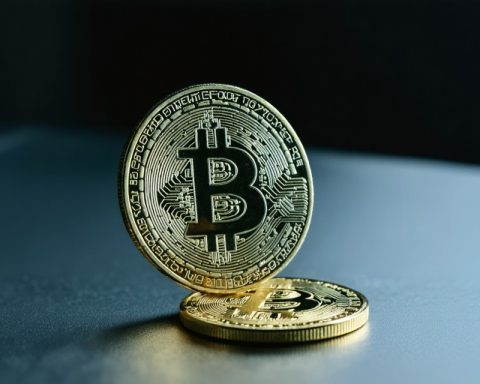A group of 36 investors in non-fungible tokens (NFTs) has initiated legal action against artist Gal Yosef and Eden Gallery. The plaintiffs assert that their commitments regarding the NFT collection were not met, particularly concerning promised benefits that included exclusive access to a virtual club.
The lawsuit, filed in a New York federal court on October 9, accuses the defendants of executing a deceptive practice known as a “rug pull.” According to the investors, the Meta Eagle Club project, which involved selling 12,000 eagle-themed NFTs and raising $13 million between February 2022 and November 2023, failed to deliver on key promises. Despite assertions of progress, the Meta Eagle Club seemingly lacked substantial development.
The promised benefits for NFT holders included access to high-profile events, such as private jet flights and exclusive art displays at Eden Gallery. However, the legal claim contends that most of these perks were either insufficiently provided or entirely absent. Notably, events organized fell short, with only two major gatherings and a limited number of exclusive art pieces available.
Eden Gallery’s community on Discord had previously voted to redirect resources towards maintaining an active marketplace due to market downturns, further complicating the situation for investors. The plaintiffs are pursuing damages and attorney fees, alleging that their investments were significantly overstated in value. This case highlights ongoing challenges in the NFT market as investors seek remedies for unmet expectations.
Essential Tips and Life Hacks for NFT Investors
Navigating the world of Non-Fungible Tokens (NFTs) can be exhilarating yet challenging. With ongoing developments in this space, especially illustrated by recent legal actions, it is crucial for investors to equip themselves with relevant knowledge and strategies. Here are some essential tips, life hacks, and fascinating facts to enhance your NFT investment experience.
1. Do Thorough Research
Investing in NFTs requires due diligence. Always investigate the background of the artists and creators behind the NFTs. Understand the project structure, the community involved, and the promises made, much like the investors did with the Meta Eagle Club. Look for verified affiliations and previous successful projects.
2. Verify Ownership and Authenticity
Before purchasing any NFT, ensure that it is minted by the rightful creator and sold on a reliable platform. Platforms like OpenSea and Rarible often display verifications for artists to assure buyers of authenticity.
3. Understand the Market Trends
NFTs are influenced by market dynamics. Keeping an eye on overall crypto market trends can give you predictive insights regarding the viability of NFT investments. For example, if Ethereum prices plummet, it may affect NFT prices as well.
4. Engage with the Community
Join discussions in NFT communities on platforms like Discord or Twitter. Interacting with fellow investors and artists can provide you with insights about projects, upcoming launches, and more importantly, potential red flags.
5. Diversify Your Portfolio
Just like any investment, do not put all your eggs in one basket. Consider diversifying your NFT portfolio across different genres, artists, and platforms to mitigate risks associated with the inherently volatile NFT market.
6. Use Limit Orders
Many NFT marketplaces allow limit orders, which can protect you from buying at a peak price. Set your price criteria in advance based on your budget and investment strategy.
7. Familiarize Yourself with Gas Fees
Transaction fees, or gas fees, can significantly impact your profits when buying or selling NFTs. Keep track of these costs on platforms like Ethereum, and consider purchasing during less busy times to minimize fees.
8. Stay Informed on Legal Matters
Given recent lawsuits, it is important to stay informed about the legal landscape surrounding NFTs. Understanding your rights and obligations as an investor can be crucial in avoiding potential pitfalls.
Interesting Fact: Did you know that the first-ever NFT was created in 2014? It was called “Quantum” and was a digital artwork created by Kevin McCoy. This pioneering piece laid the foundation for the NFT market as we know it today.
For more insights into the world of NFTs and to keep yourself updated with the latest news, visit CoinDesk.
Final Thoughts:
Investing in NFTs can be a thrilling venture, but it is essential to approach it with knowledge and caution. By following these tips and life hacks, you can enhance your investment strategy and potentially avoid the pitfalls that some investors have faced. Remember to always conduct thorough research and engage with the community to stay ahead in this rapidly evolving market.










